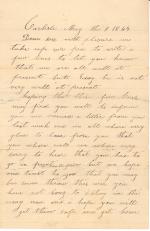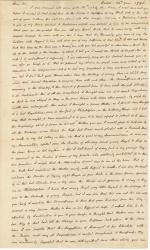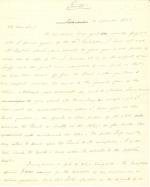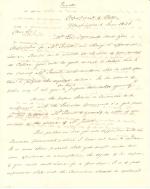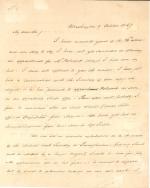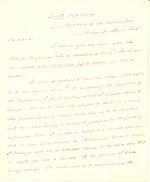Letters from John Cuddy (Jan. 1862)

John Taylor Cuddy writes a series of four letters to his friends and family, describing life as a solider for the Union Army along with his experience in military campaigns during the Civil War. Transcripts included.





